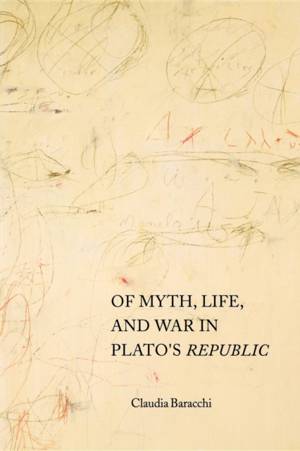
- Retrait gratuit dans votre magasin Club
- 7.000.000 titres dans notre catalogue
- Payer en toute sécurité
- Toujours un magasin près de chez vous
- Retrait gratuit dans votre magasin Club
- 7.000.000 titres dans notre catalogue
- Payer en toute sécurité
- Toujours un magasin près de chez vous
Description
"Baracchi has identified pivotal points around which the Republic operates; this allows a reading of the entire text to unfold. . . . a very beautifully written book." --Walter Brogan
" . . . a work that opens new and timely vistas within the Republic. . . . Her approach . . . is thorough and rigorous." --John Sallis
Although Plato's Republic is perhaps the most influential text in the history of Western philosophy, Claudia Baracchi finds that the work remains obscure and enigmatic. To fully understand and appreciate its meaning, she argues, we must attend to what its original language discloses. Through a close reading of the Greek text, attentive to the pervasiveness of story and myth, Baracchi investigates the dialogue's major themes. The first part of the book addresses issues of generation, reproduction, and decay as they apply to the founding of Socrates' just city. The second part takes up the connection between war and the cycle of life, employing a thorough analysis of Plato's rendition of the myth of Er. Baracchi shows that the Republic is concerned throughout with the complex but intertwined issues of life and war, locating the site of this tangled web of growth and destruction in the mythical dimension of the Platonic city.
Spécifications
Parties prenantes
- Auteur(s) :
- Editeur:
Contenu
- Nombre de pages :
- 264
- Langue:
- Anglais
- Collection :
Caractéristiques
- EAN:
- 9780253214850
- Date de parution :
- 10-01-02
- Format:
- Livre broché
- Format numérique:
- Trade paperback (VS)
- Dimensions :
- 157 mm x 237 mm
- Poids :
- 426 g







